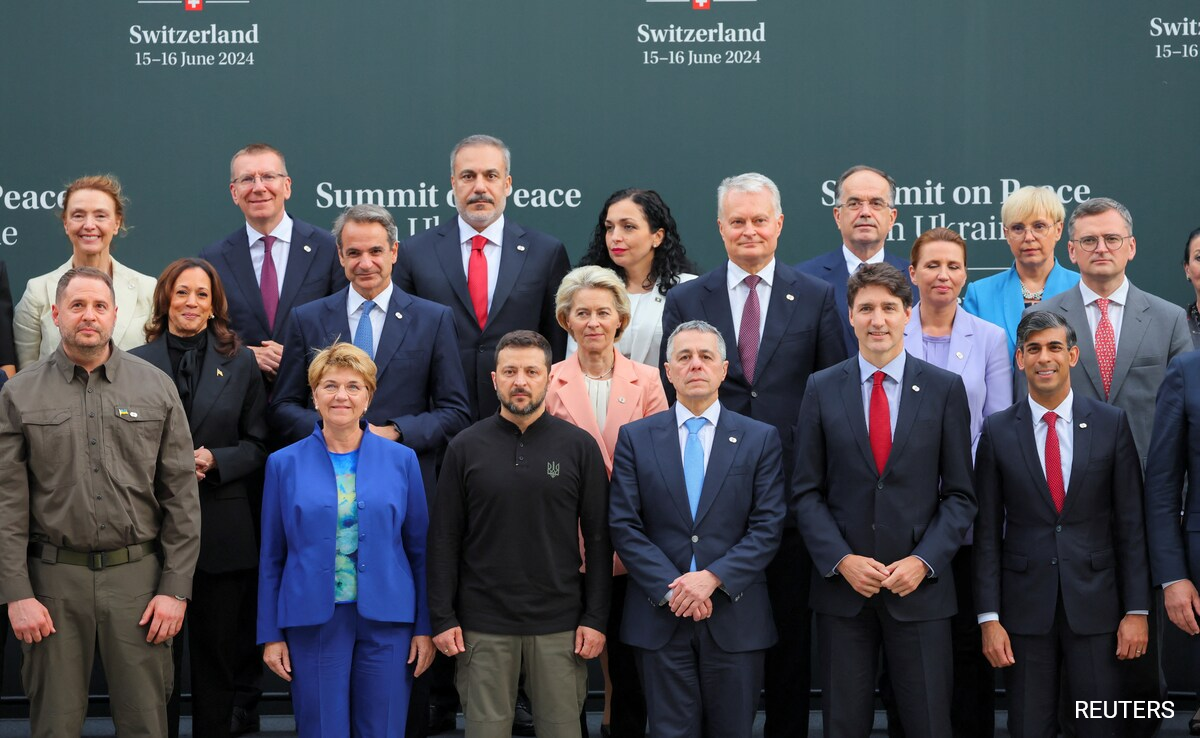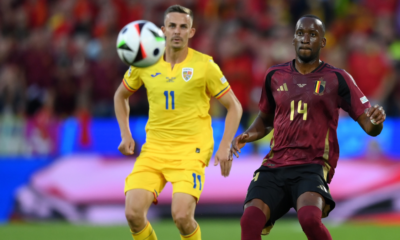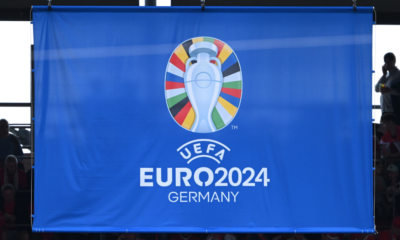No country has come forward to organize such a meeting again.
Western powers and their allies denounced Russia’s invasion of Ukraine at a summit in Switzerland on Sunday, but they failed to convince major non-aligned states to join their final declaration, and no country has signed on to host a sequel.
More than 90 countries attended the two-day talks at a Swiss mountain resort on behalf of Ukrainian President Volodymyr Zelensky, which was billed as a “peace summit” even though Moscow was not invited.
Russia ridiculed the event from afar. A decision by China to stay away almost assured that the summit would fail to achieve Ukraine’s goal of convincing the major countries of the “global South” to join in isolating Russia.
Brazil was only present as an “observer”. And in the end, India, Indonesia, Mexico, Saudi Arabia and South Africa all withheld their signatures on the summit communiqué, even though some controversial issues were left out in the hope of broader support.
Still, the conference offered Kiev the opportunity to demonstrate the support from Western allies that the country says it needs to continue fighting a much larger enemy.
“We are responding to Russia’s large-scale invasion of Ukraine not only with a full defense of human life, but also with large-scale diplomacy,” Zelenskiy said.
Leaders including US Vice President Kamala Harris, German Chancellor Olaf Scholz and French President Emmanuel Macron gathered at the mountain resort of Buergenstock. US President Joe Biden, who was in Europe last week for other events, did not attend despite public invitations from Zelenskiy.
The front lines in Ukraine have barely moved since late 2022, despite tens of thousands of deaths on both sides in brutal trench warfare, the bloodiest fighting in Europe since World War II.
In her closing speech, Swiss President Viola Amherd warned that the “road ahead is long and challenging.”
Russia, as it has done for weeks, mocked the meeting.
“None of the participants in the ‘peace forum’ know what he is doing there and what his role is,” said Dmitry Medvedev, the former president of Russia and now vice-chairman of the country’s Security Council.
‘It can’t go on like this any longer’
After initial Ukrainian successes, with Kiev repelling an attack on the capital and regaining territory in the first year of the war, a major Ukrainian counter-offensive using donated Western tanks failed last year. Russian forces still control a fifth of Ukraine and are advancing again, albeit slowly. There have been no peace talks for more than two years.
“We know that peace in Ukraine will not be achieved in one step, it will be a journey,” European Commission chief Ursula von der Leyen said, calling for “patience and determination.”
“They were not peace negotiations because (Russian President Vladimir) Putin is not serious about ending the war. He insists on capitulation, he insists on ceding Ukrainian territory – even territory that is not occupied today.”
Lacking a clear path to end the war, Zelenskiy emphasized practical issues such as nuclear safety and securing food supplies from Ukraine, one of the world’s largest grain exporters.
The summit’s final declaration called for Ukraine’s restoration of control over the Zaporizhia nuclear power plant and Azov seaports. But in keeping with the conference’s more modest objectives, the more difficult issues were left out, such as what a post-war settlement for Ukraine might look like, whether Ukraine could join the NATO alliance and how the withdrawal of troops on both sides would can work.
“The more allies can be found who say: ‘This cannot continue’, ‘This is too much’, ‘That goes too far’, that also increases the moral pressure on the Russian Federation,” the Austrian Chancellor said. Karl Nehammer.
When Sunday’s talks focused on issues such as food security and nuclear energy, some leaders left early.
No country has applied to host another such meeting, with the remarkable silence from Saudi Arabia mentioned as a possible future location. Foreign Minister Prince Faisal bin Farhan Al Saud said the kingdom is ready to support the peace process, but a viable solution depends on a “difficult compromise.”
Since the first peace talks in the first months after the February 2022 invasion, Ukraine has consistently demanded that Russia withdraw from all its lands, while Moscow has demanded recognition of its rule over the territory its forces have captured.
Last week, in remarks clearly aimed at the conference, Putin said Russia would not end the war until Kiev completely withdraws its troops from four provinces that Moscow only partly controls and claims to have annexed. Kiev quickly denounced that as a demand for surrender.
“Of course we fully understand that there will come a time when it will be necessary to talk to Russia,” said Ukrainian Foreign Minister Dmytro Kuleba. “But our position is very clear: we will not allow Russia to speak in the language of ultimatums as it speaks now.”
Western leaders at the summit endorsed Kiev’s refusal to negotiate on such terms.
“To confuse peace with submission would set a dangerous precedent for everyone,” Italian Prime Minister Giorgia Meloni said.
(Except for the headline, this story has not been edited by NDTV staff and is published from a syndicated feed.)














